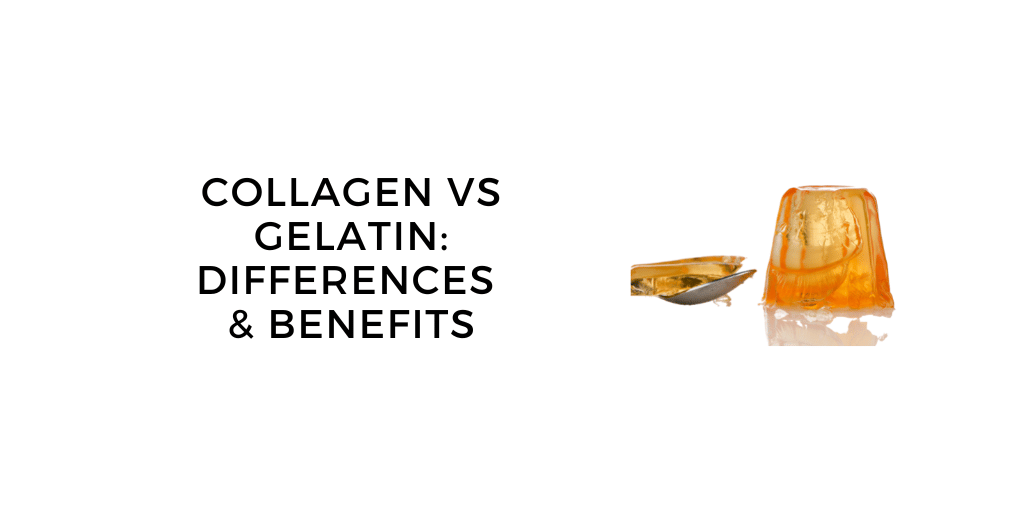
Collagen vs. Gelatin: Differences, Benefits, Uses and Which is Better
Differences Between Collagen and Gelatin
It's time to put an end to the confusion between collagen and gelatin. You're not alone in being confused. These two proteins are often used interchangeably, but there are actually some important distinctions between them.
These differences affect the health benefits for your skin, weight loss goals, muscle strength and digestion. They also impact when to use each one. I'll walk you through all of the differences and when to use each in this article.
But before we do that, I'll mention that high protein bone broth is eerily similar to both and provides even more gut healing health benefits. If you are trying to fix your digestion, I'd recommend using one like the Bluebird Provisions chicken.
Alright, let's get into it.
Gelatin or Collagen
Choosing gelatin or collagen comes down to whether you want to prioritize cooking, convenience, weight loss or cost. I'll outline each of the key differences below.
1. Gelatin Powder Gels in Liquid
Gelatin powder will thicken when mixed into a liquid because of its natural gelling characteristics (1). This is why it is used in jell-o, mousse, panna cotta, marshmellows and gummy bears.
I personally love to use gelatin to thicken up anything I'm cooking from chicken soup to stews and sauces. I used to use cornstarch but find that gelatin adds more protein with the same thickening properties.
Collagen does not share these same qualities because the structure of the amino acid molecules is slightly different.

2. Gelatin May be Better for Weight Loss
Gelatin is better for keeping you full and satisfied because it gels in your stomach to keep you satiated before your next meal.
In fact, one study showed that gelatin decreased hunger by 44% compared to milk protein (casein) (2). Finally, it attracts digestive enzymes to your stomach to help you properly digest and absorb food.
My favorite for this is great lakes beef gelatin.
3. Collagen is More Popular in Supplements
Collagen is best suited as a supplement because it is easily mixed into hot and cold beverages, is unflavored and doesn't have a chalky taste that vegan protein powders have.
Conversely, gelatin is overlooked as a supplement, maybe because of its association with pudding, jello-o, gummies and marshmallows.
These foods are not typically seen as beauty products.
Combine that fact that our typical Western diet does not get enough collagen and our bodies produce less collagen over time, and you have a recipe for opportunity.
Supplement brands jumped at it and the market is booming. Collagen's popularity in supplements is due to its ability to alleviate and improve skin wrinkles, build stronger bones and stiffer joints.
Since it shares the name of the protein found in our bodies, people think that taking it will directly increase their levels.
4. Collagen is More Cost Effective
Collagen is more cost effective for a few reasons. First, the market is larger (both supplement, medical and cosmetic), this allows for greater economies of scale among the companies that make it.
Also, the manufacturing methods are slightly different, meaning that producers can harvest a bit more collagen per pound of ingredients than gelatin.
Gelatin is made from the processing of animal bones and connective tissues. This requires a few more steps during manufacturing that raises the cost.
5. Gelatin Supplements are Better for Cooking & Desserts
Gelatin powder and supplements are better for cooking because they dissolve really well into hot liquids and more texture.
This gel is a chefs dream for naturally thickening soups, sauces and stews. Gone are the days where you have to use nasty things like cornstarch.
These properties make it a perfect binder for desserts like mouse, jellies, candy and creme brûlée. This protein adds a thicker, richer feel to these recipes.
I use it to make my own jell-o or to thicken yogurt for cereal.
6. Gelatin and Collagen are Both Hydrolyzed
Gelatin and collagen are both hydrolyzed, but in slightly different ways. This effects digestibility, so it is worth pointing out the differences.
Gelatin is partially hydrolyzed because of the way it is made. What does hydrolyzed mean? It is the process of breaking down long chains of amino acids (aka proteins) to smaller ones.
Smaller chains (or hydrolyzed products) are thought to be easier on your digestive system.
A few years ago, collagen was not hydrolyzed, but nowadays, many brands have products that are hydrolyzed collagen peptides. This is why you can mix them into cold liquids as well as hot.
But the thing to keep in mind is that hydrolysis requires some heavy processing to get the right peptide structure. So hydrolyzed products are more processed than unhydrolyzed ones.
7. Collagen Powder is More Convenient
Collagen powder is more convenient because it already comes in pills, powder, capsules and drinks... heck you can buy bars and water with the stuff in it.
You can easily take single serve sachets with you wherever you go and mix it into virtually any liquid.
Collagen and Gelatin Nutrition Difference
When comparing collagen and gelatin, the nutritional values are almost identical. Both have 12 g protein per serving (2 tbsp) along with zero carbs and no fat.

The calories you can see below are slightly different and the amino acid profile is a tiny bit different as well. For all intents and purposes, the strict health benefits are very similar.
I would not get caught up in taking one over another if you are trying to optimize specific health outcomes. This level of hair splitting is unnecessary.
It is important to mention that neither of these are considered complete proteins because they lack a full essential amino acid profile.
For this reason, do not rely on collagen as your sole protein source. You need other sources to get all amino acids.
Dosing Considerations
When it comes to dosing, the effective amount based on the research is anywhere between 2.5 to 15 grams per day of either product, depending on your goal.
For gut, skin, muscle mass and joint health, you want to be on the higher range. For bone health, studies recommend taking 5 g daily for one year.
For recipes and cooking, you need to check the specific instructions for how much gelatin to use. I'll typically use 1 tbsp at a time to thicken soups.
Give it a few minutes under heat to naturally thicken things up, then add more if needed.
For strictly nutritional benefits, it's a good idea to start with 10 g daily for 6 weeks. See how you look, feel and perform after that and adjust accordingly.
You can get these same benefits by drinking one cup of traditionally made bone broth per day.
Overall, there is not a significant difference in the nutrition between collagen and gelatin, but the ways in which they are consumed and used in the body are very different.
Which one is better for gut health?
When it comes to gut health, gelatin is superior because of its ability to gel in your stomach and intestines. This gel helps to bring more mucous and digestive enzymes to your gut.
These enzymes gradually break down the gel into its amino acid components which are shown to produce new connective tissue in your gut (3).
This new tissue heals and seals your gut to allow you to properly digest food and absorb all of its nutrients.
You can get even more gut healing benefits from drinking bone broth because it has more glycine than either.
Which one is best?
Which one is best comes down to your individual goals and needs.
If you're baking, making soups or sauces, choose gelatin
Gelatin is an ideal ingredient for baking, making soups, and sauces because of the awesome texture it provides. It's not until I started cooking that I begun to prefer it myself.
Looking for a supplement recommendation? Read my guide to finding the best collagen powder for weight loss.
There's something comforting knowing that you can thicken things without using nasty processed GMO ingredients like cornstarch.

I can't think of a better way to thicken any food because gelatin is all protein and has so many benefits. Be sure to follow any baking or dessert recipes very carefully though.
Some call for sheets (more popular in Europe) while others use powder. I would recommend getting a scale and doing it by weight to make sure you don't add too much or too little.
For a convenient supplement, choose collagen peptides
Collagen peptides are a good option if you just want it in an easy and convenient supplement form. You can mix in hot and cold liquids, smoothies, juice and even coffee.
Plus, you can take it with you, leave some at work or wherever you need it.
It is important to know that collagen supplements are highly processed. If you are okay knowing that then look for one that is certified Organic, non GMO and is sourced from the USA, Canada or Europe.
If the brand is being intentionally vague about sourcing then do not trust them. Run in the other direction.
To get started, try bone broth
Bone broth is a traditional cooking practice that involves slowly cooking animal bones, joints and connective tissue in water.
The level of processing is much less than any collagen or gelatin product. For this reason, many people report that it heals their gut and is better tolerated.
A new study used bone broth to heal those suffering from ulcerative colitis (4). This is really a landmark study that shows the unique healing properties of this beverage.
The best one for digestion, hydrating your skin and reducing joint pain is made by Bluebird Provisions. You can find their chicken bone broth powder online or on Amazon.
Is Jello gelatin the same as collagen?
No, Jello is not the same as collagen. Jello is a processed pudding product that uses gelatin as one of the ingredients. The problem is that Jell-o is full of sugar to the tune of 19 grams per serving with only to 2 g of protein.

This means that you would need to consume 5 servings to get 10 grams of collagen daily which would give you 95 grams of sugar.
As you can see from the image, Jello also has things like fumaric acid, red 40, adipic acid and artificial flavors.
Red 40 sounds more like a football play than an ingredient.

On the whole, consuming products like these are recipe for diabetes, and not a good source of protein.
Why do they feed you jello in the hospitals?
In hospitals, jello is often served as a snack or meal because it is an easily digested, cheap, tastes delicious and big food companies lobby hospitals to include it.
In reality, the cost and lobbying powers are the two main reasons since jello is not a good source of protein or gelatin with only 2 g per serving.
Which is better, collagen or gelatin? Closing Thoughts
Both have their own unique benefits that can be helpful for different purposes. If you’re looking for a convenient and travel ready supplement that may improve your skin, hair, nails, joints and digestion, collagen is a great choice.
If you want something that can be used in cooking and is especially good for supporting gut health or for reducing hunger, then gelatin is a better option.
And if you want to maximize your health and longevity, a high protein bone broth is the clear winner. Why? Because of the extra energy you get from hydrating electrolytes and more amino acids and joint building compounds like glucosamine and chondroitin.
You can find Bluebird Provisions on their website or on Amazon.
Have you tried both? Which do you prefer? Leave a comment and let me know or if you have any questions leave one as well and I'll get back to you.
Now a few frequently asked questions.
Is gelatin good for anti aging?
Gelatin is a great supplement for anti-aging because it is rich in glycine (3 g / serving), proline and hydroxyproline which can help heal leaky guts, give you glowing skin and reduce joint pain.
There is some research to suggest that you can use gelatin for weight loss which helps with longevity.
Can you use gelatin instead of collagen?
Yes, you can use gelatin instead of collagen because it provides the same health benefits and can be used interchangeably.
Sources
(1) https://www.ncbi.nlm.nih.gov/pmc/articles/PMC5430197/
(2) https://pubmed.ncbi.nlm.nih.gov/19864402/
(3) https://core.ac.uk/download/pdf/188827306.pdf
(4) https://www.ncbi.nlm.nih.gov/pmc/articles/PMC8618064/
Disclaimer: this information is for educational purposes only and has not been evaluated by the FDA or CFIA. It is not intended to diagnose, treat, cure, or prevent any disease. Please consult your primary care physician for advise on any of this.
Bluebird Provisions is reader-supported. When you buy through links on our site, we may earn an affiliate commission. As an Amazon Associate, we earn from qualifying purchases.

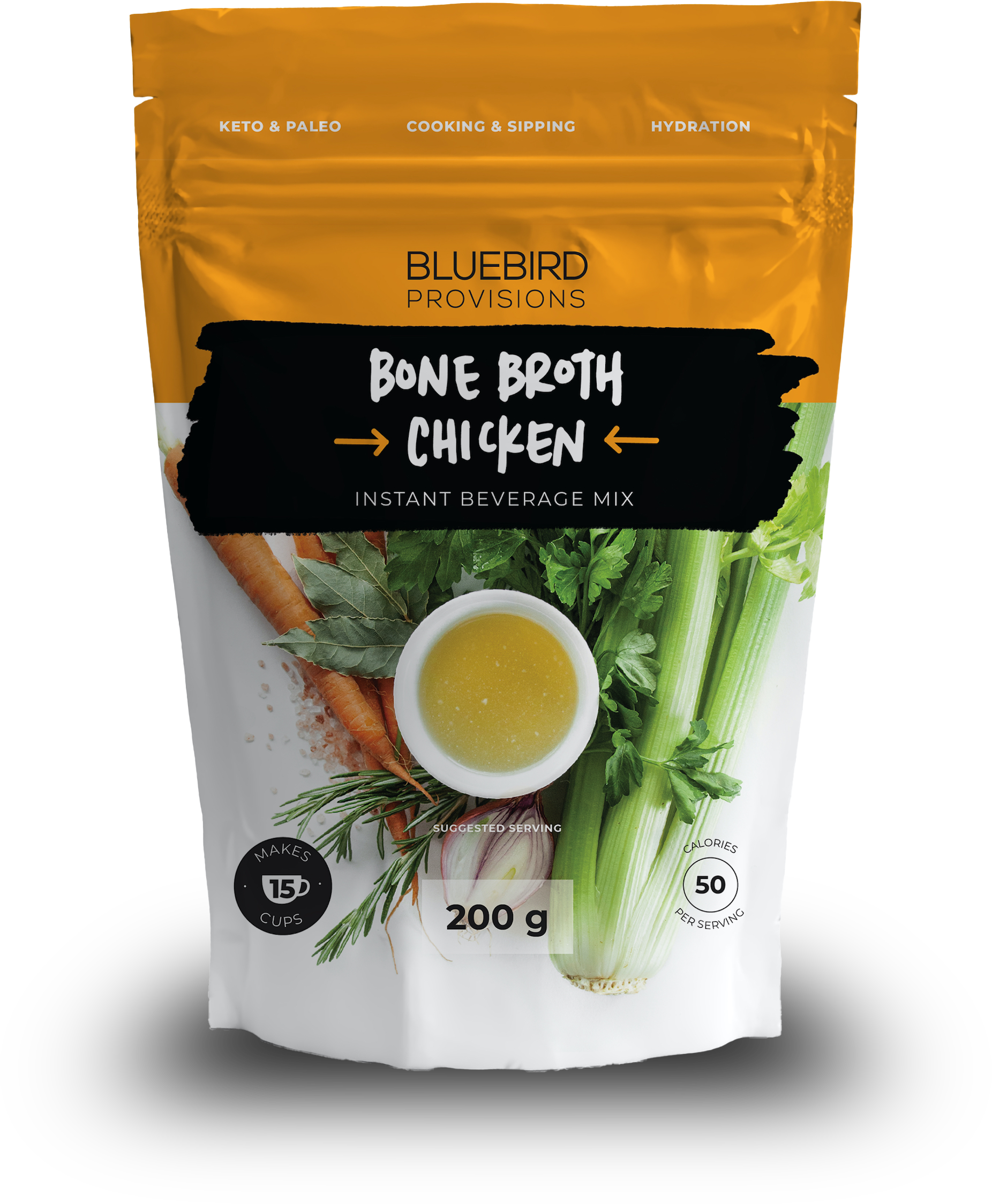
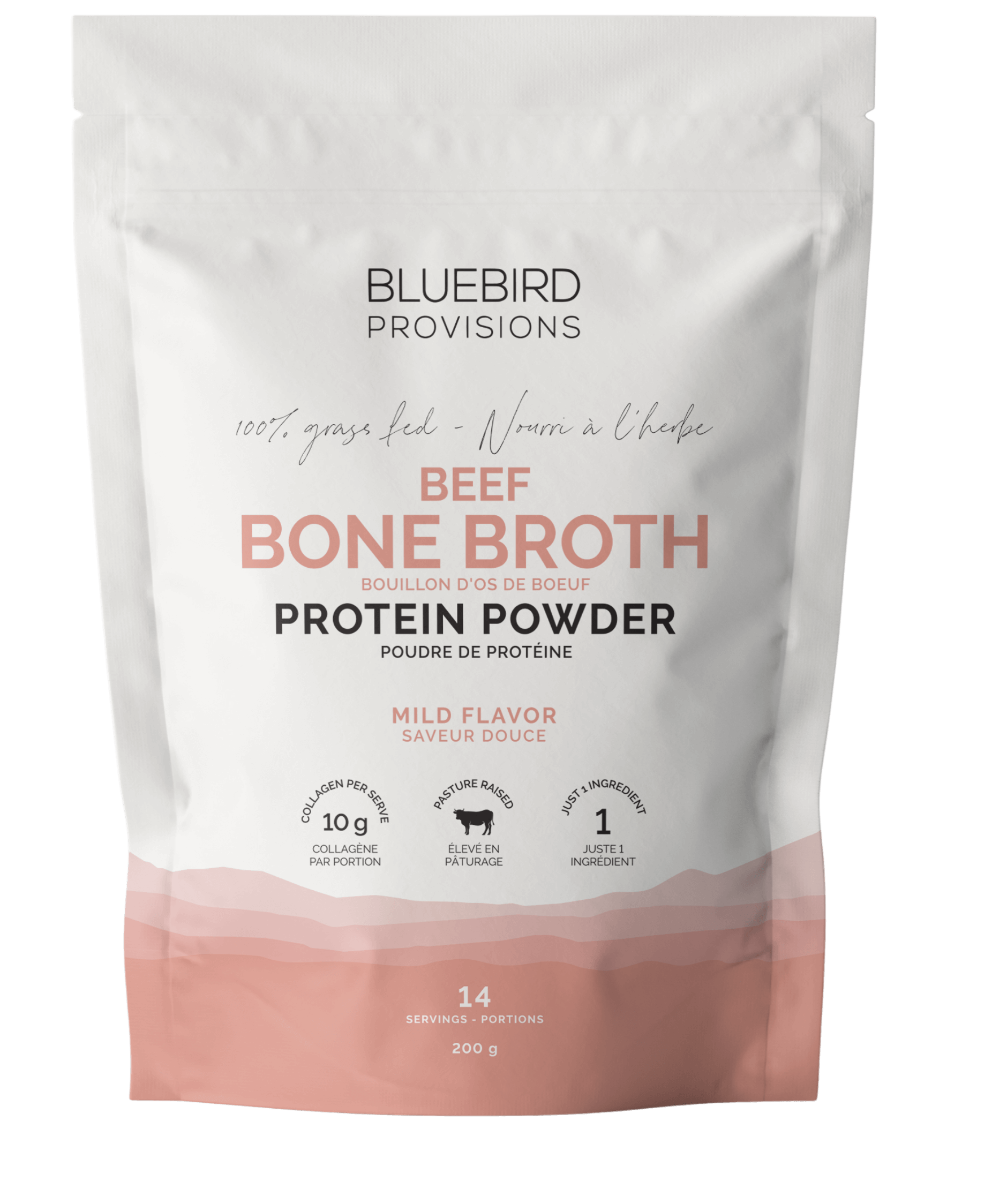
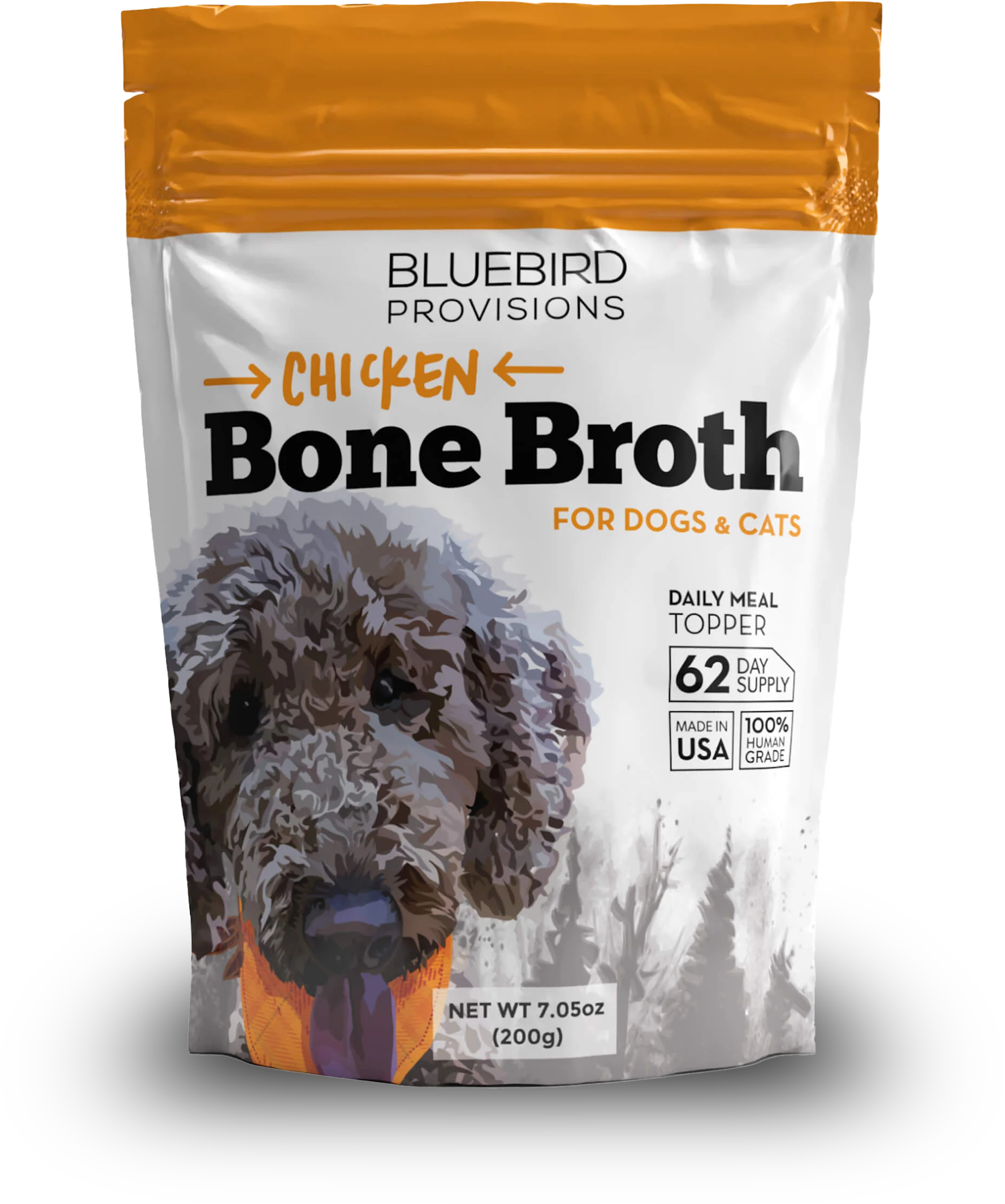
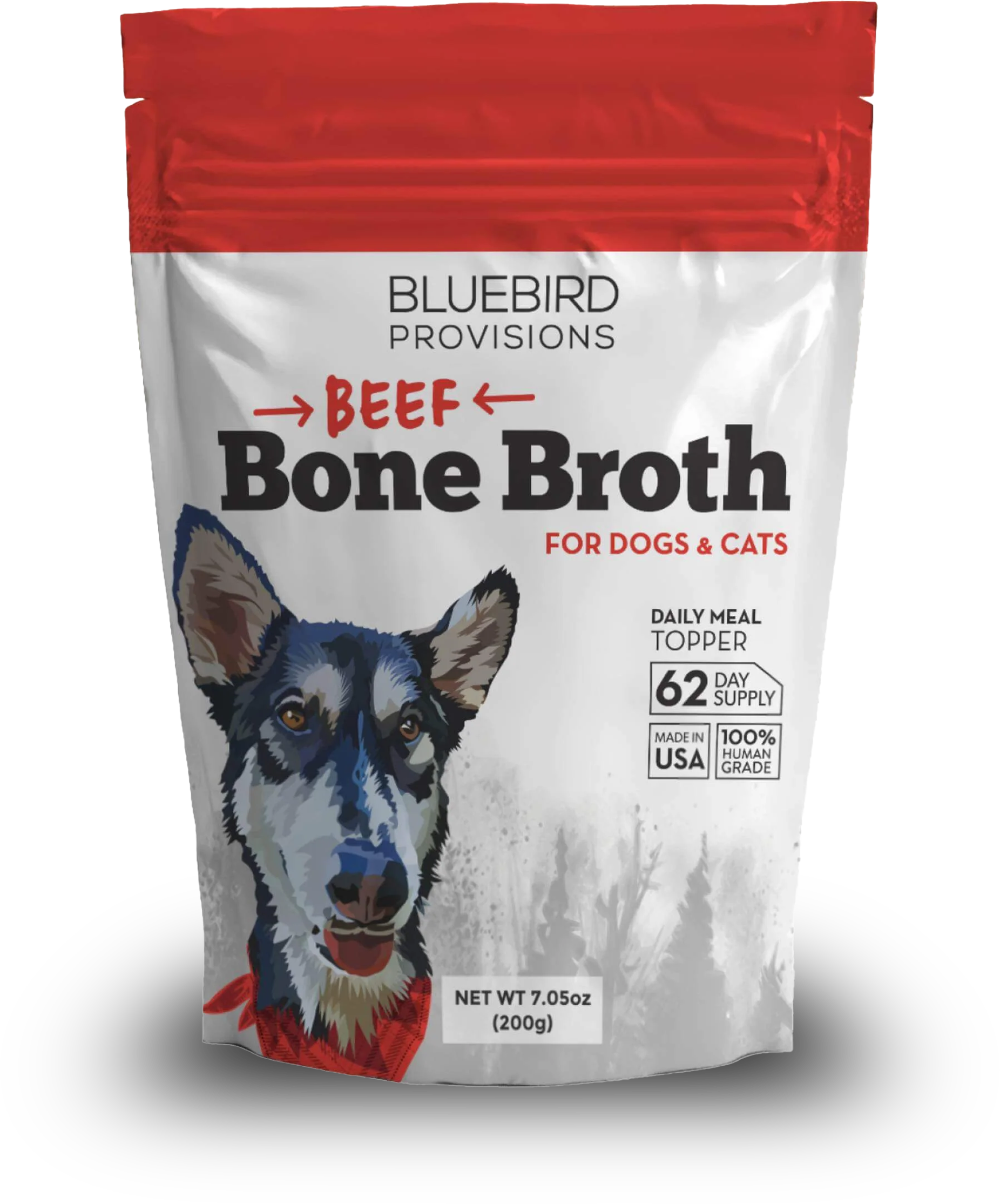
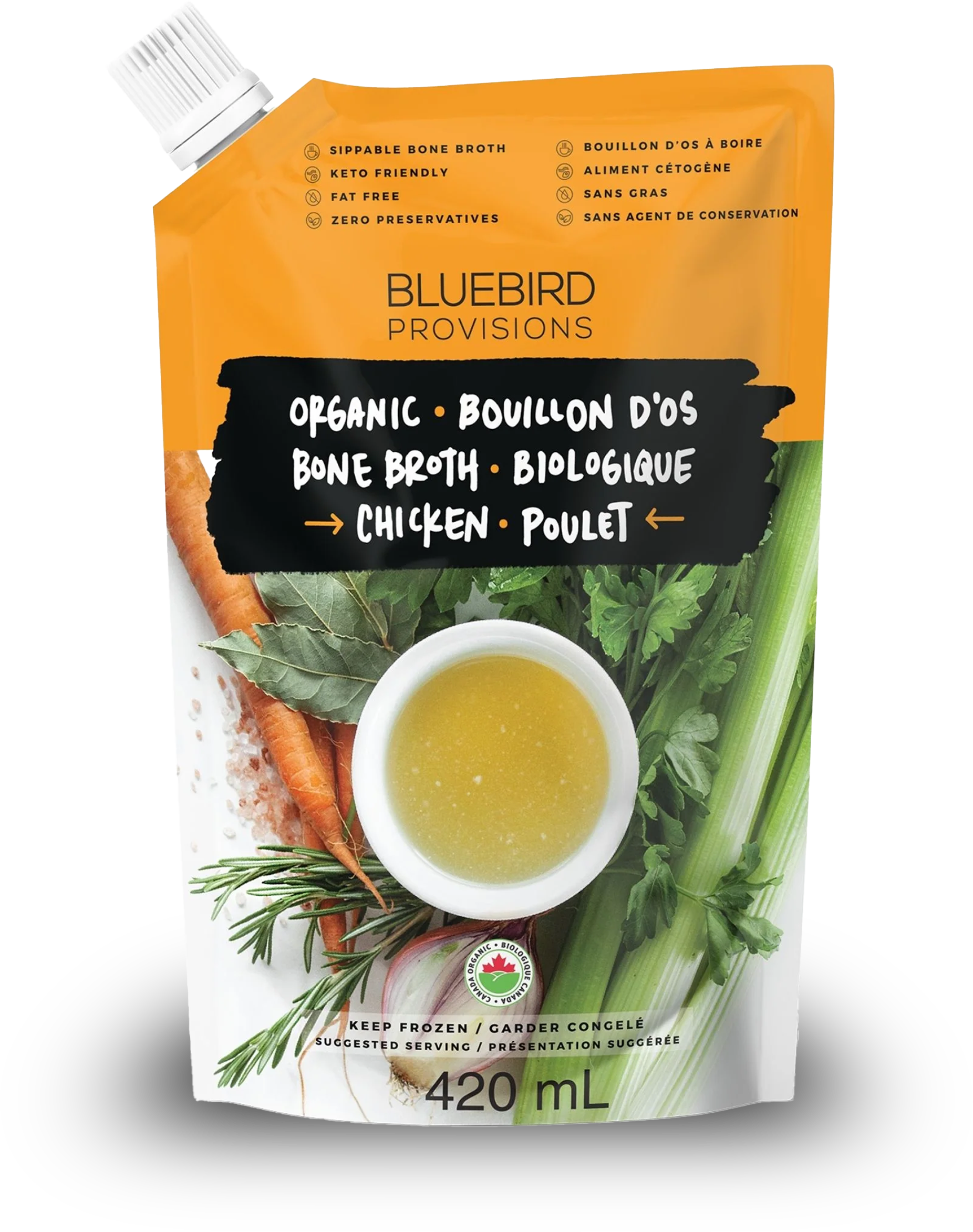
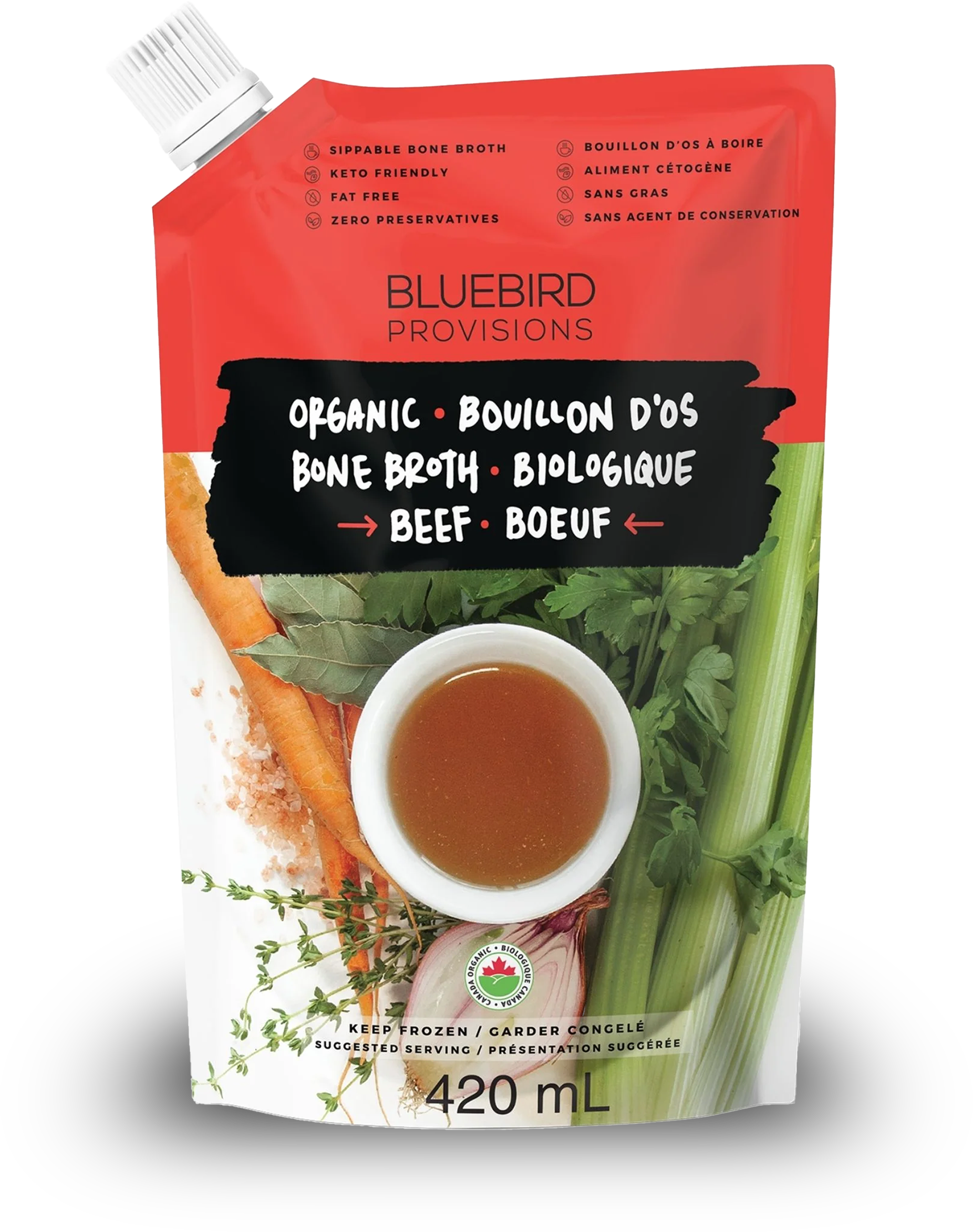


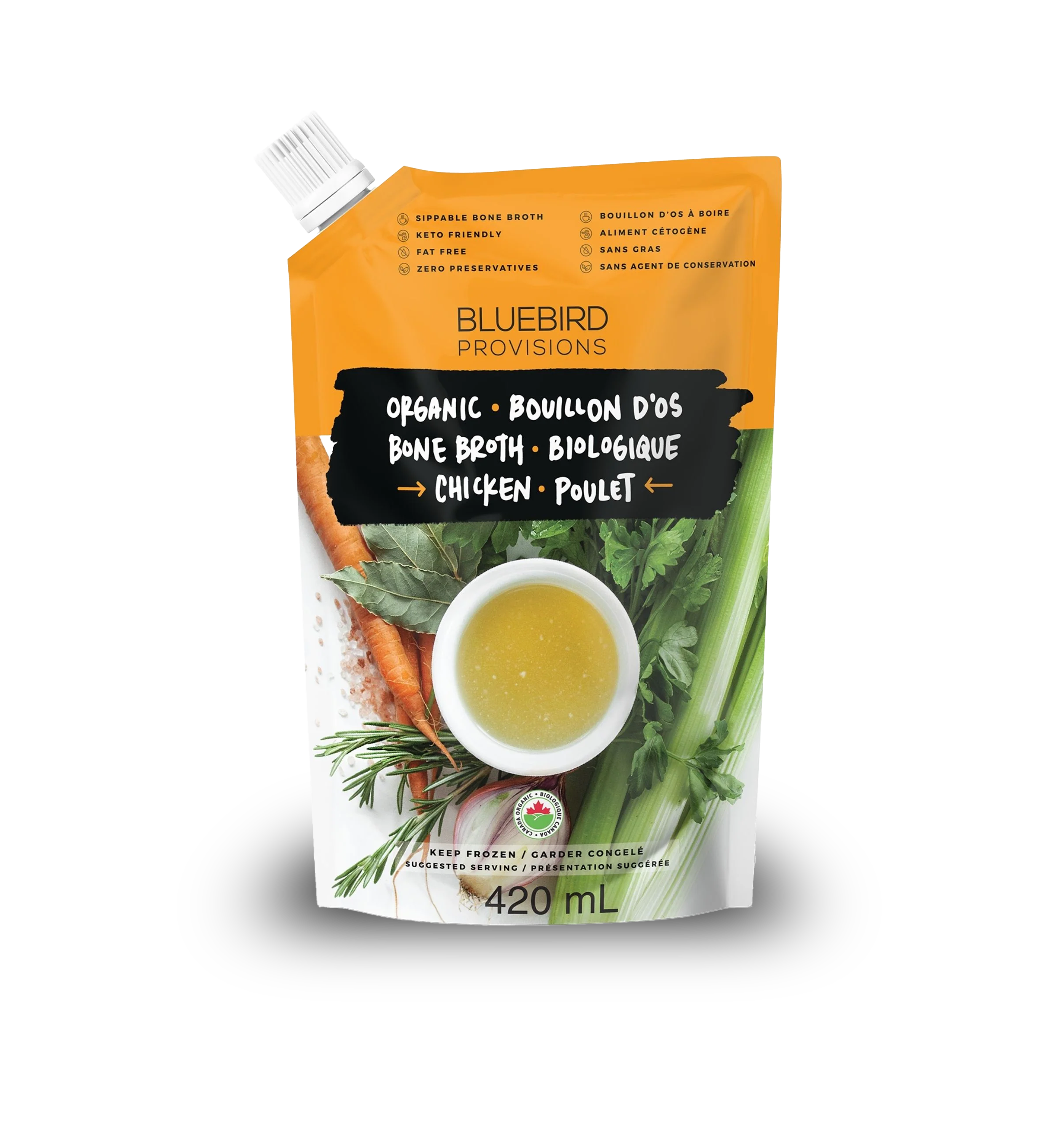
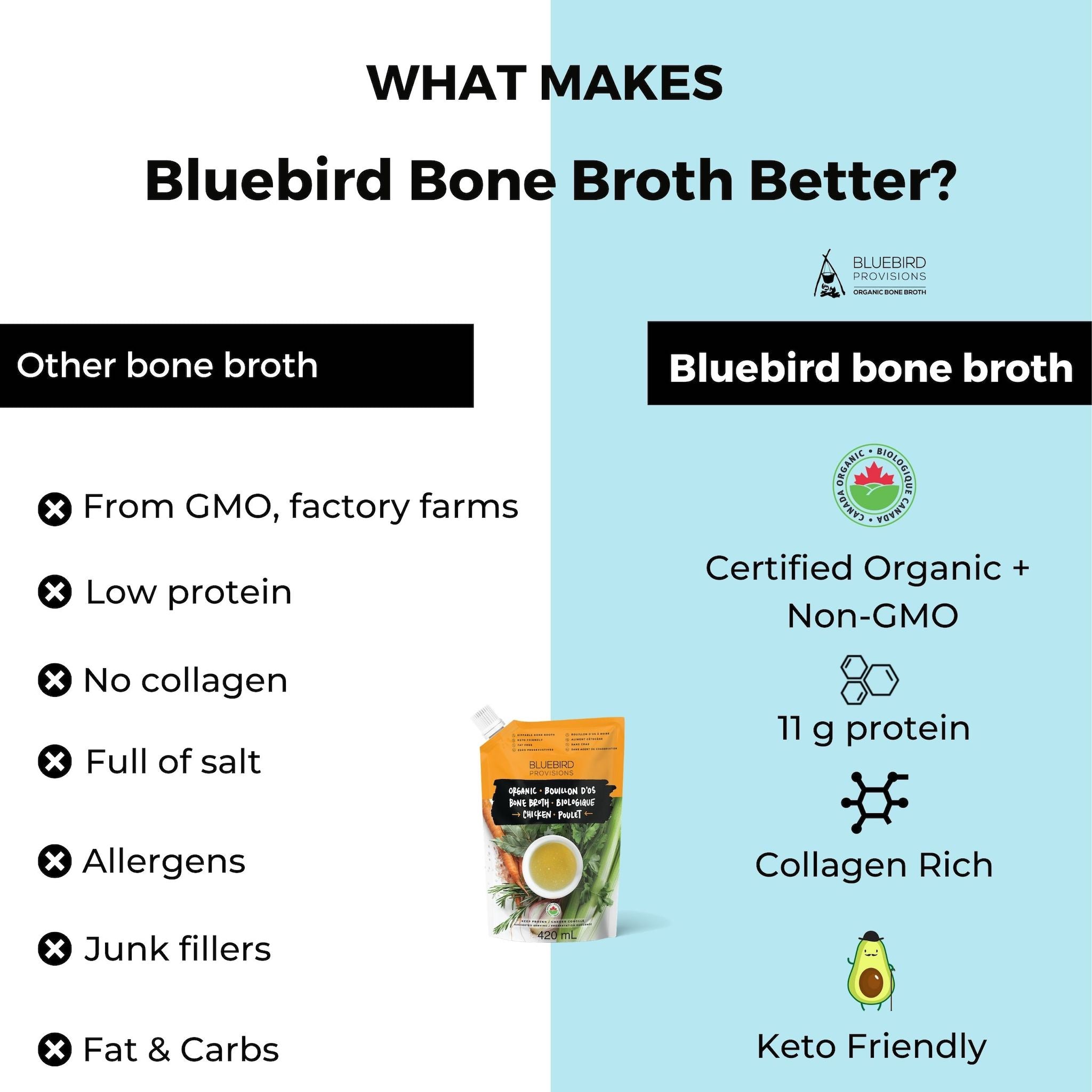
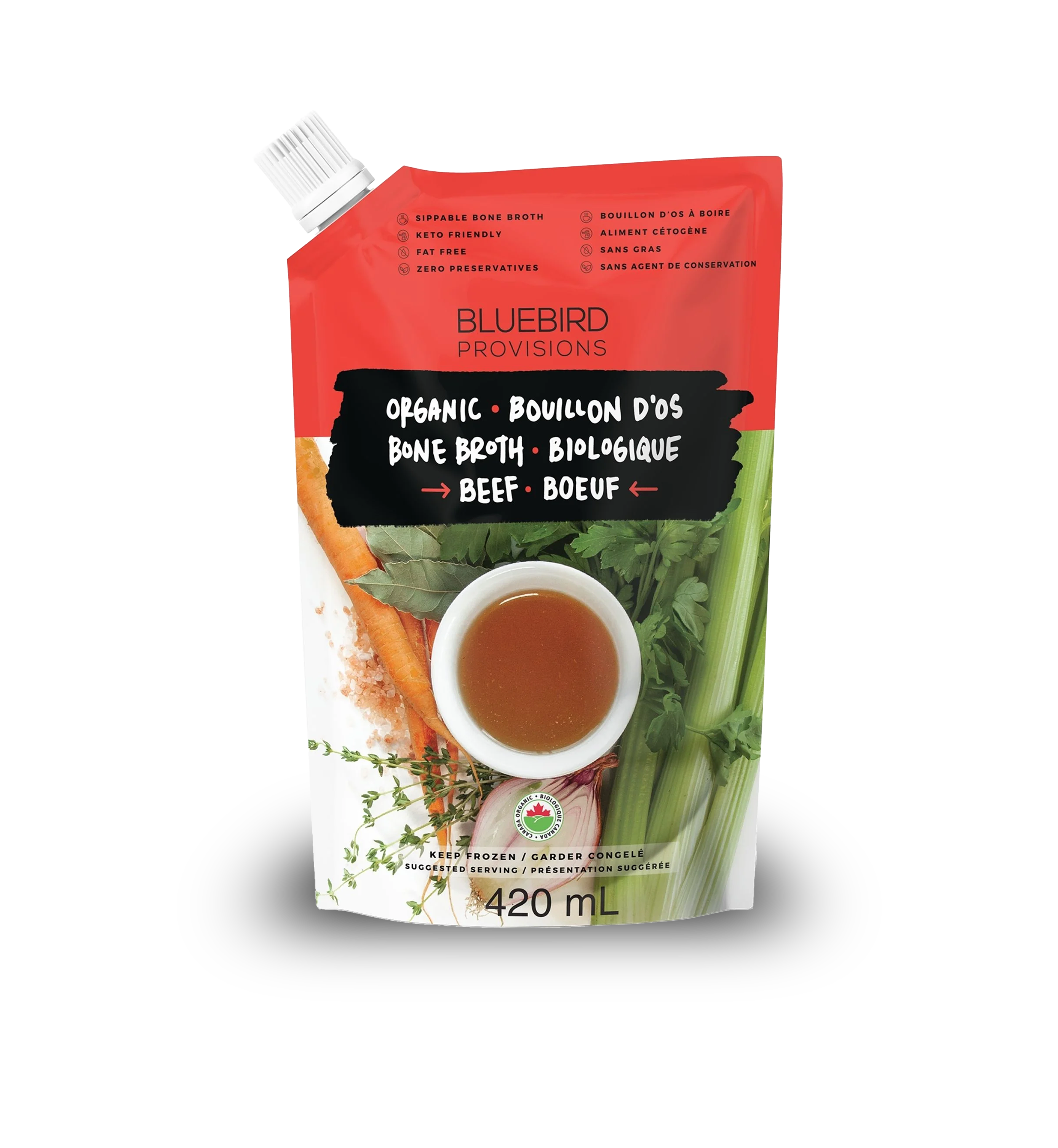
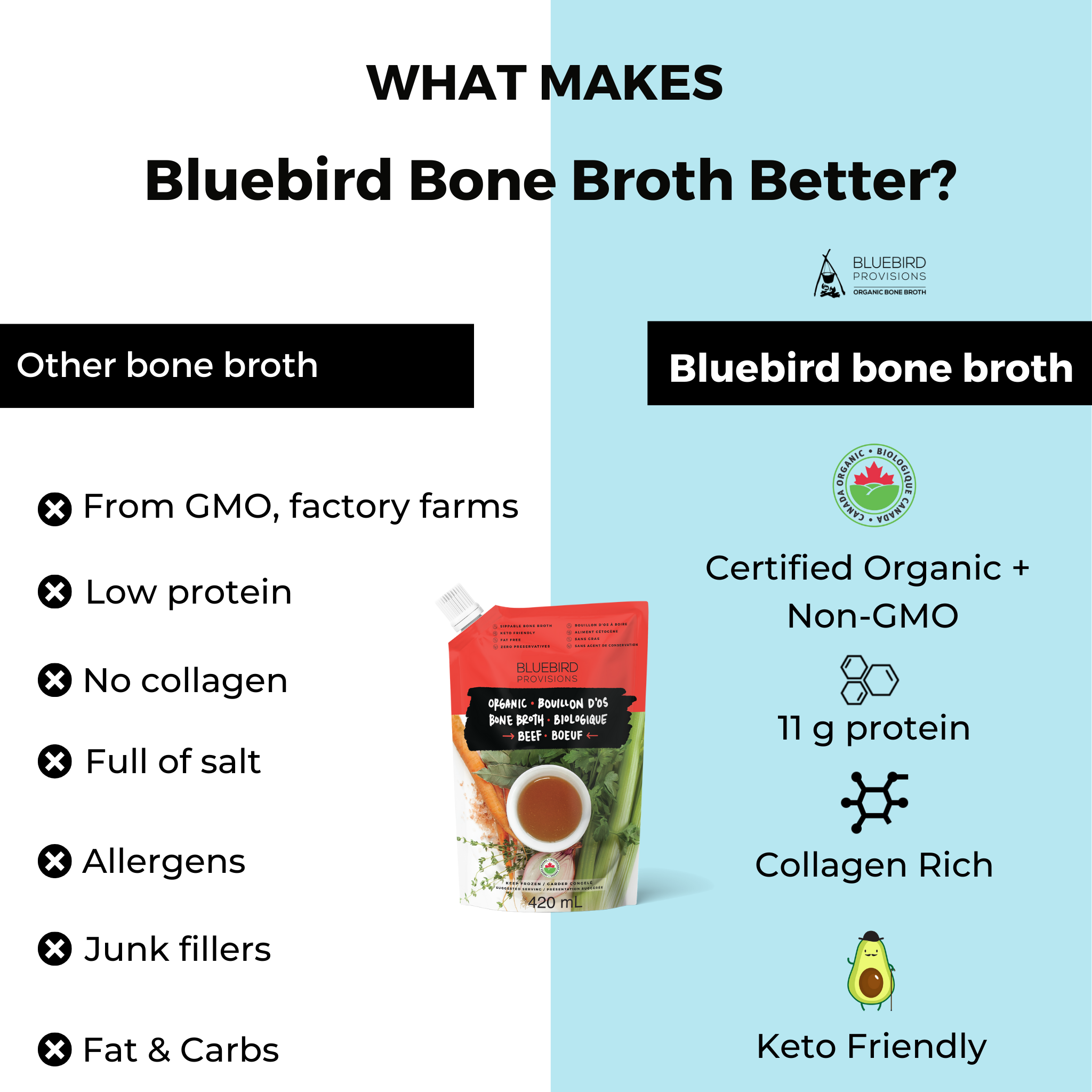
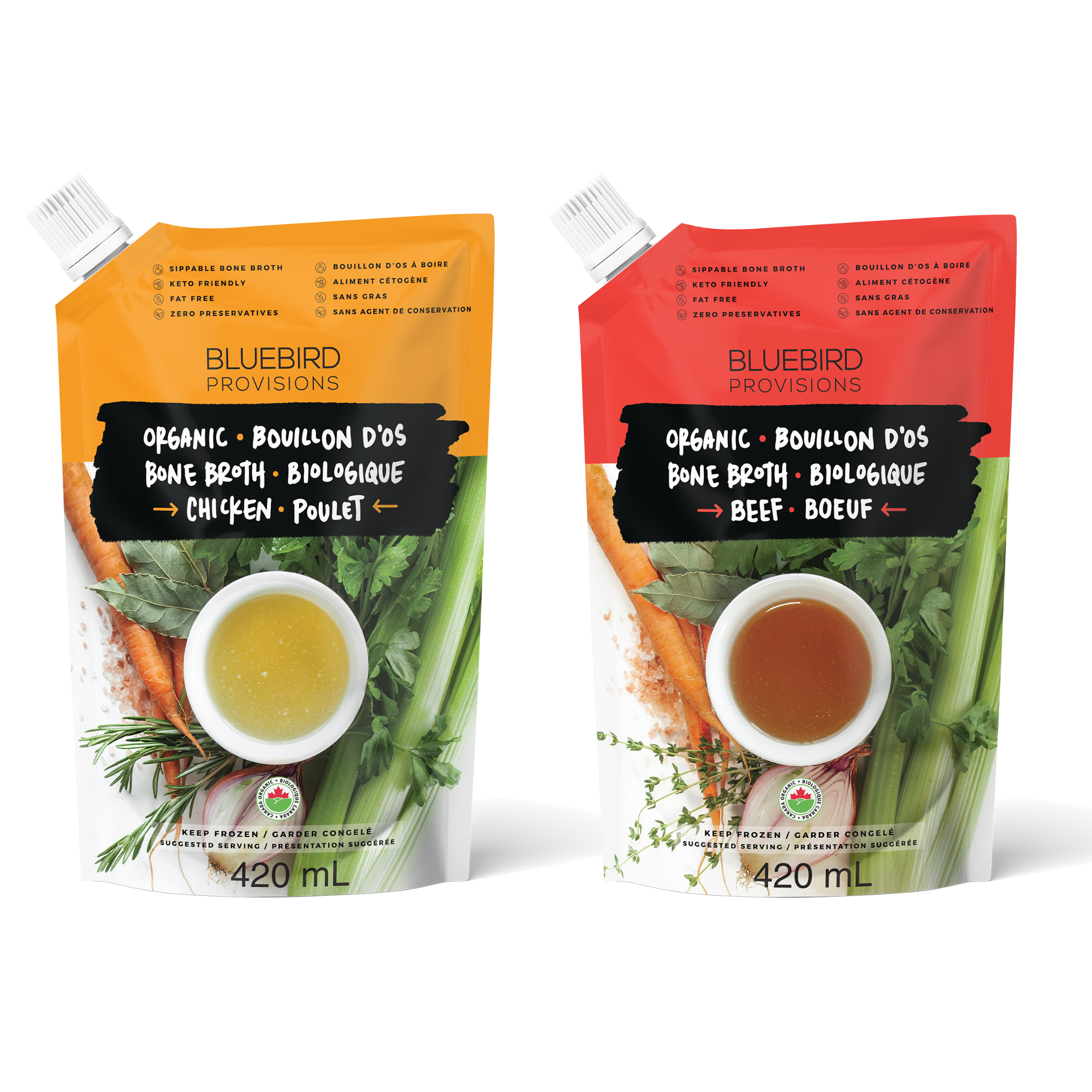

Leave a comment
This site is protected by hCaptcha and the hCaptcha Privacy Policy and Terms of Service apply.